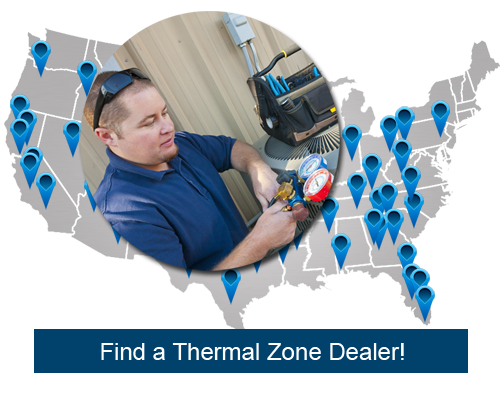Energy Efficiency Incentives
Find a DEALER or DISTRIBUTOR

Federal Tax Credit
Federal Residential Energy Efficiency Tax Credit
Note: This tax credit expired at the end of 2014. The Consolidated Appropriations Act, signed in December 2015, retroactively renewed this tax credit effective January 1, 2015, expiring again on December 31, 2016. Any qualified equipment installed in 2015 or 2016 is eligible for this credit. As in previous years, the cumulative maximum amount of tax credit that can be claimed by a taxpayer in all years combined is $500. If a taxpayer has already claimed a tax credit of $500 for purchases made in any previous year, they are ineligible for additional tax credits for any new equipment purchases.
This credit applies to energy efficiency improvements in the building envelope of existing homes and for the purchase of high-efficiency heating, cooling and water-heating equipment. Efficiency improvements or equipment must serve a dwelling in the United States that is owned and used by the taxpayer as a primary residence. The maximum tax credit for all improvements made in 2011 – 2016 is $500. The cap includes tax credits for any improvements made in any previous year. If a taxpayer claimed $500 or more of these tax credits in any previous year, any purchases made in 2011 – 2016 will be ineligible for a tax credit.
Energy Improvement and Extension Act of 2008 (H.R. 1424)
Geothermal tax credits are also available for home owners who install geothermal heating and cooling systems through the Energy Improvement and Extension Act of 2008 (H.R. 1424). H.R. 1424 offers a onetime tax credit of 30% of the total investment for homeowners who install residential ground loop or ground water geothermal heat pumps that meet or exceed Energy Star requirements and are installed after December 31, 2007. The tax credit is available through December 31, 2016. Consult your local tax professional for advice on taking advantage of this tax credit.
How do I Apply for a Tax Credit?
For qualified HVAC improvements, homeowners may be able to claim 25C tax credits equal to 10 percent of the installed costs (up to $500 maximum*). The extended tax credit is in effect for all qualifying systems and products installed during the 2012 and 2013 calendar years and expires on December 31, 2013. For qualified geothermal improvements, homeowners may be able to claim HR 1424 tax credits equal to 30% of the total installed costs. Subject to IRS regulations, tax credits apply as a direct reduction of taxes owed. The IRS has directed taxpayers to use Form 5695 to calculate and file for their residential energy credits. Customers should consult with a tax professional to fully understand how the tax credits may apply to you, what you can do to obtain one, and for advice on and/or assistance with tax preparation.
Heating, Cooling and Water-Heating Equipment
Taxpayers who purchase qualified residential energy-efficient property may be eligible for a tax credit. The credit is equal to the full cost of the equipment up to the following caps:
- Advanced main air circulating fan: $50
- Natural gas, propane, or oil furnace or hot water boiler with an annual fuel utilization rate of 95 or greater: $150
- Electric heat pump water heater with an energy factor of at least 2.0: $300
- Electric heat pump which achieves the highest efficiency tier established by the Consortium for Energy Efficiency: $300
- Central air conditioner which achieves the highest efficiency tier established by the Consortium for Energy Efficiency: $300
- Natural gas, propane, or oil water heater which has either an energy factor of at least 0.82 or a thermal efficiency of at least 90 percent: $300
- Biomass stoves that use “plant-derived fuel available on a renewable or recurring basis, including agricultural crops and trees, wood and wood waste and residues (including wood pellets), plants (including aquatic plants), grasses, residues, and fibers”. Systems must have a thermal efficiency rating of at least 75 percent to qualify: $300
Please refer to the U.S. Department of Energy for further details
For more information on state-by-state policies and initiatives, visit http://www.dsireusa.org/
Request A Quote
Provided by our trusted Authorized Dealer Network
Quote Request
Contact Us
Contact your local independent Thermal Zone Heating & Air Conditioning Dealer. You can find the closest dealer to you by completing our find a Thermal Zone dealer form.

